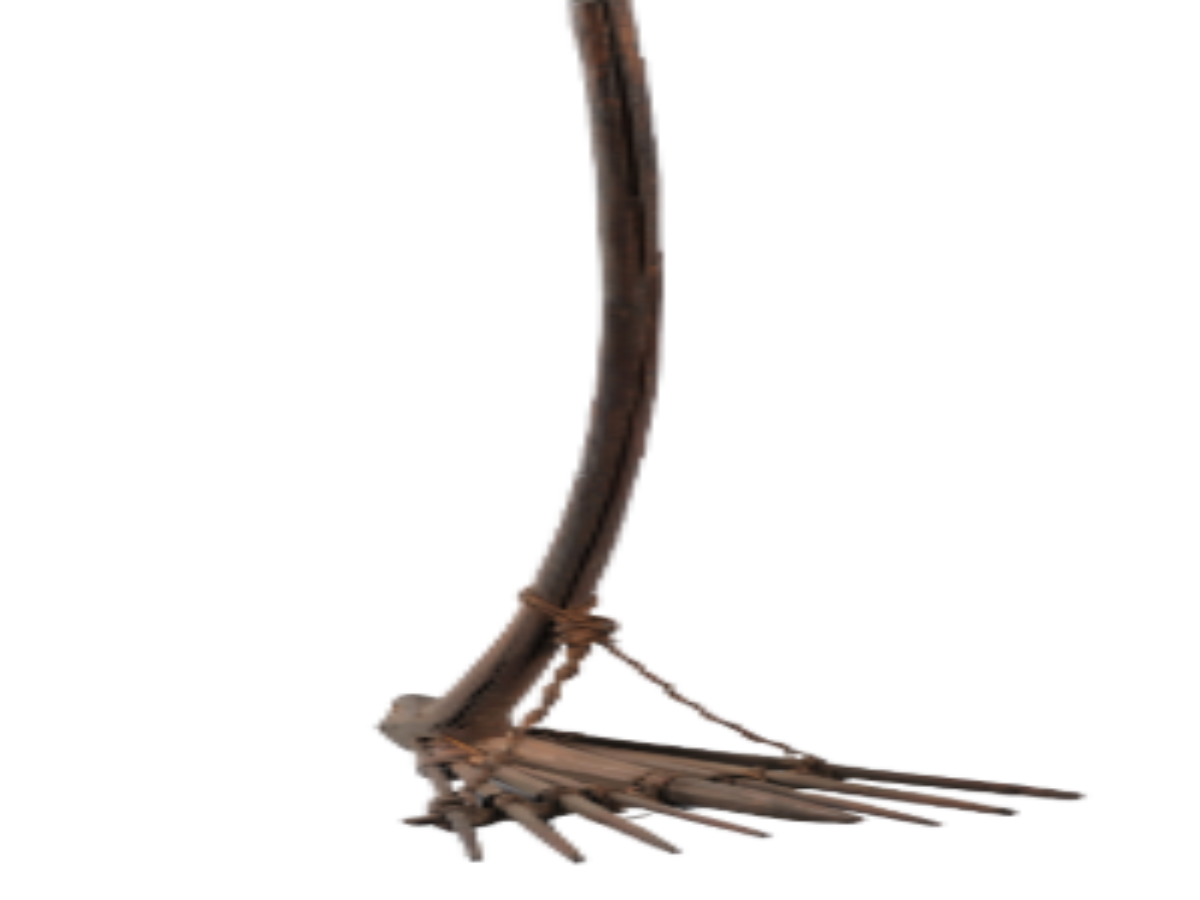State
Tribe Name
Art Type
short description
This rake is but one of the conventional farming implements used by the Angami Naga tribe of the state Nagaland in India. The base of this equipment is formed by a long wooden branch which has an angular projection at one of its ends. Seven bamboo spikes were placed in the fan-like configuration for attachment to the handle and the point of projection while it remains at the center for structural support.
Thumbnail

Filter Postion
Left
Filter Background
Off
Theme
Filter Header Image

content
Image

description
This rake is but one of the conventional farming implements used by the Angami Naga tribe of the state Nagaland in India. The base of this equipment is formed by a long wooden branch which has an angular projection at one of its ends. Seven bamboo spikes were placed in the fan-like configuration for attachment to the handle and the point of projection while it remains at the center for structural support.
The spikes are very closely wrapped by cane strips making them efficient and long-lasting. The tool has a very specific usage in conducting Jhum (shifting agriculture) cultivation, which is immensely practiced by Angami. After planting the seeds, it uses the rake to cover them lightly with soil and clear small debris or weeds for right germination. This is a rich agricultural heritage identifying Angami Naga tribes across Kohima district, Nagaland, and their sustainable farming practices. Such tools, as this wood rake, become clear indicators of traditional ecological knowledge within a blend to local materials and a functional design. Again, the abundant use of bamboo and cane in this region shows their relationship with eco-friendliness and low-impact agriculture.
The spikes are very closely wrapped by cane strips making them efficient and long-lasting. The tool has a very specific usage in conducting Jhum (shifting agriculture) cultivation, which is immensely practiced by Angami. After planting the seeds, it uses the rake to cover them lightly with soil and clear small debris or weeds for right germination. This is a rich agricultural heritage identifying Angami Naga tribes across Kohima district, Nagaland, and their sustainable farming practices. Such tools, as this wood rake, become clear indicators of traditional ecological knowledge within a blend to local materials and a functional design. Again, the abundant use of bamboo and cane in this region shows their relationship with eco-friendliness and low-impact agriculture.
Image Mode
landscape
promoted
On
Verified
Off
